BEAUTY REDEFINED
My Hair, My Heritage: Black women share stories of embracing their natural hair
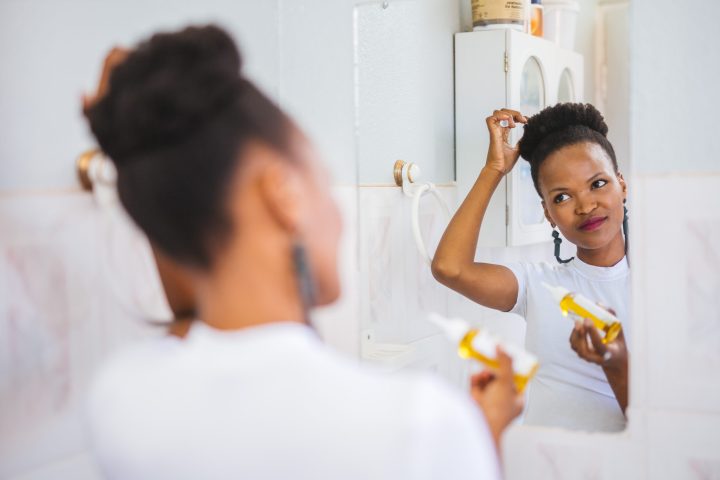
After the Clicks hair advertisement fiasco, Daily Maverick spoke to black women who’ve moved to wearing their natural hair about reclaiming their beauty and the politics of black hair.
“Our hair represents so much more than just aesthetics. Our journey and history with hair carries too much hurt and trauma for us to reduce it to preference and choice of hairstyle,” said Kamogelo Magabane, founder of the Redefining Beauty Movement.
Magabane is a senior business analyst by profession and one of countless women of colour who’ve made the choice to forego chemical straighteners and embrace their natural hair.
The recent debacle which saw a TRESemmé advert on the Clicks website depicting a white woman’s hair as “fine & flat” and “normal” while a black woman’s hair was described as “dry & damaged” and “frizzy & dull” has resurfaced a loaded conversation about Westernised beauty standards and the politics of black hair.
According to 2018 research by market intelligence company Mintel, at-home relaxer sales over a two-year period dropped by 22.7% in the US, while in South Africa, the drop was close to 20%. More than 50% of black American women said their current hairstyles made them “feel beautiful”.
In 2018, international hair industry trends showed a near 20% drop in hair chemicals sales. According to the Clicks Group, the trend was similar in South Africa. The African hair industry was worth R 6.3-billion in 2015.
The natural hair movement, which has its roots in the 1960s with the Black Power revolution against US white supremacy, resurfaced in the 2000s and encouraged women around the world with kinky and curly hair to abandon chemical straightening and embrace their natural hair texture.
Bloggers, vloggers and social media groups emerged, forming what is now known as the natural hair community, among whom tips and tricks are shared on hair care, products and styling.
Recently, however, the natural hair community has got flack for promoting colourism and preferences towards hair types of people of mixed-race descent.
The choice to ‘go natural’
Data from 2018 by Mintel showed that 40% of black US women are most likely to wear their hair natural (no chemicals), with no heat styling.
Tlhologelo Mabelane, founder of MabuTribe, which makes and sells healthy hair products and accessories, chose to stop using relaxers in 2011 when she realised her hair was damaged. But she struggled with the transition.
“I had never encountered it in its natural state and did not know what to do with it. The combs, products and accessories I used just did not work, so I used a lot of heat to straighten it. I was frustrated and relaxed my hair again,” she said.
Nosipho Mtulu, a Cape Town-based researcher and digital strategist, chose to go natural after watching Chris Rock’s documentary Good Hair, which explores the importance of hair in black culture.
“There was a specific scene in that documentary where Chris Rock had placed a Coke can into a tub of relaxer, and the can literally started to break down. That image just stuck with me because I remember thinking, this is literally what we are putting on to our hair follicles.”
Data from Mintel also showed that 70% of black American women said they preferred to read ingredient labels in hair care products to avoid certain chemicals.
Magabane started afresh by shaving her head. This is known fondly as “the big chop”. Her transition was for health reasons. In 2013 she underwent surgery for fibroids and after doing some research, was concerned that relaxers may have contributed to her health problems.
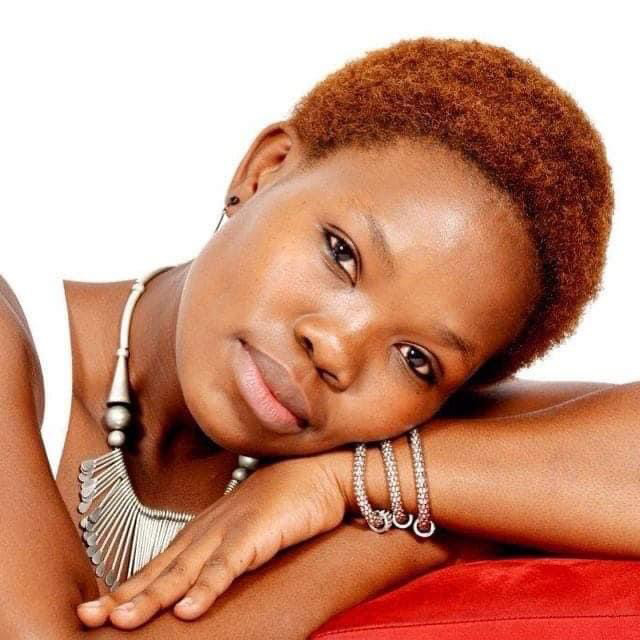
Kamogelo Magabane is the founder of the Redefining Beauty Movement which promotes self-love and body positivity. (Photo supplied)
‘A labour of love’ – learning how to care for my hair
“It’s an ongoing struggle to style my hair,” said Magabane. “It’s an art on its own”. She feels there isn’t enough information readily available on natural hair care.
“I had to invest a lot of time, money and trial and error and research in order to know what I know about different types of hair, different kinds o
f oils and their purpose as well as basic moisture techniques.”
Categorising hair into “types” is a popular system that has emerged to assist with hair care. Andre Walker, hairstylist for The Oprah Winfrey Show, created the system in the 1990s. It places hair into one of four categories based on texture: straight, wavy-curly, curly-kinky or kinky-coily. Each category has a subset based on the individual curl pattern. A person can have multiple curl patterns on different parts of their hair.
Try this quiz to figure out your hair type.
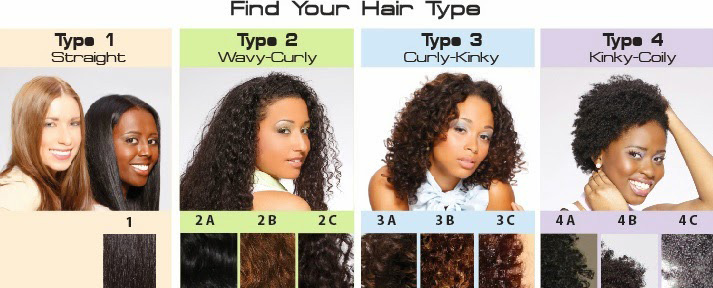
Categorising hair into ‘types’ is a popular system that has emerged to assist with hair care. (Photo: mynaturalhairstyles.com)
For Mtulu, learning her hair type (4c) has helped her discover that her hair craves moisture, it doesn’t need to be combed often and responds well to different oils like avocado and olive oil.
“A big part of my hair care is shampoos that aren’t overly stripping [of oil] but it’s also really important that there isn’t any sulphur in them.”
4c hair is recognised as the most common hair texture among black African women. The curl pattern is very tightly curled or “coily”.
Initial criticisms of the natural hair movement were that there was scant representation of women with tightly curled hair compared with women with loose curls. Mabelane, who described her hair care journey as a “messy process”, struggled to find women on YouTube giving styling tips for her hair type. She also found that the products advertised by influencers were not available in South Africa.
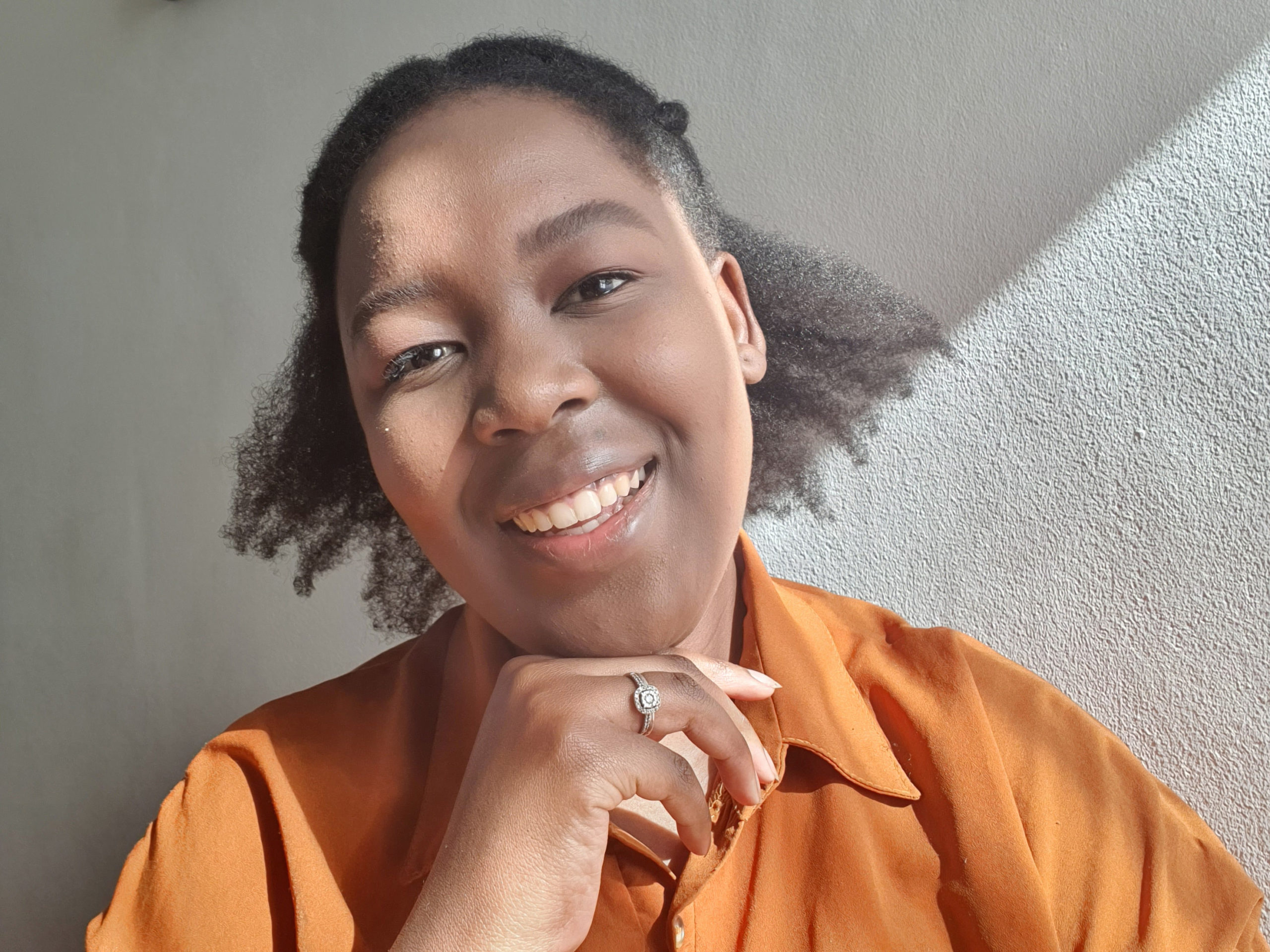
Researcher and digital strategist Nosipho Mtulu decided to go natural after watching comedian Chris Rock’s 2009 documentary Good Hair. (Photo supplied)
But Mtulu feels that information on natural hair is expanding, though it’s not coming from formal scientific research. “We’ve gone through a period of awakening,” she said. “An overwhelming amount of that knowledge is actually coming from content creators, it’s coming from, you know, YouTubers and bloggers who have taken the time to really understand what works and what doesn’t.”
The pain of discrimination
“Growing up, I just never received affirmation about having ‘good hair’. It never grew much,” said Mabelane. After transitioning, she struggled to “feel beautiful” or go out in public with her natural hair.
“To make it worse, people didn’t affirm the look and rather questioned it, and those who were brave enough asked if there was a financial issue that meant I couldn’t ‘get my hair done’.”
Mtulu, who spent the bulk of her childhood in the United Kingdom, was one of two black children in her school.
“My mother actually told me that I used to literally cry in the morning when she’d be doing my hair. I would be crying and frustrated because I wanted my classmates’ hair.”
At school she was gawked at, children would touch her head and she was asked inappropriate questions. The result was discomfort and insecurity about her hair. After her big chop, Magabane loved her new hairstyle, but growing up she often had short hair and was mocked for it. “I was called rural and a tomboy.”
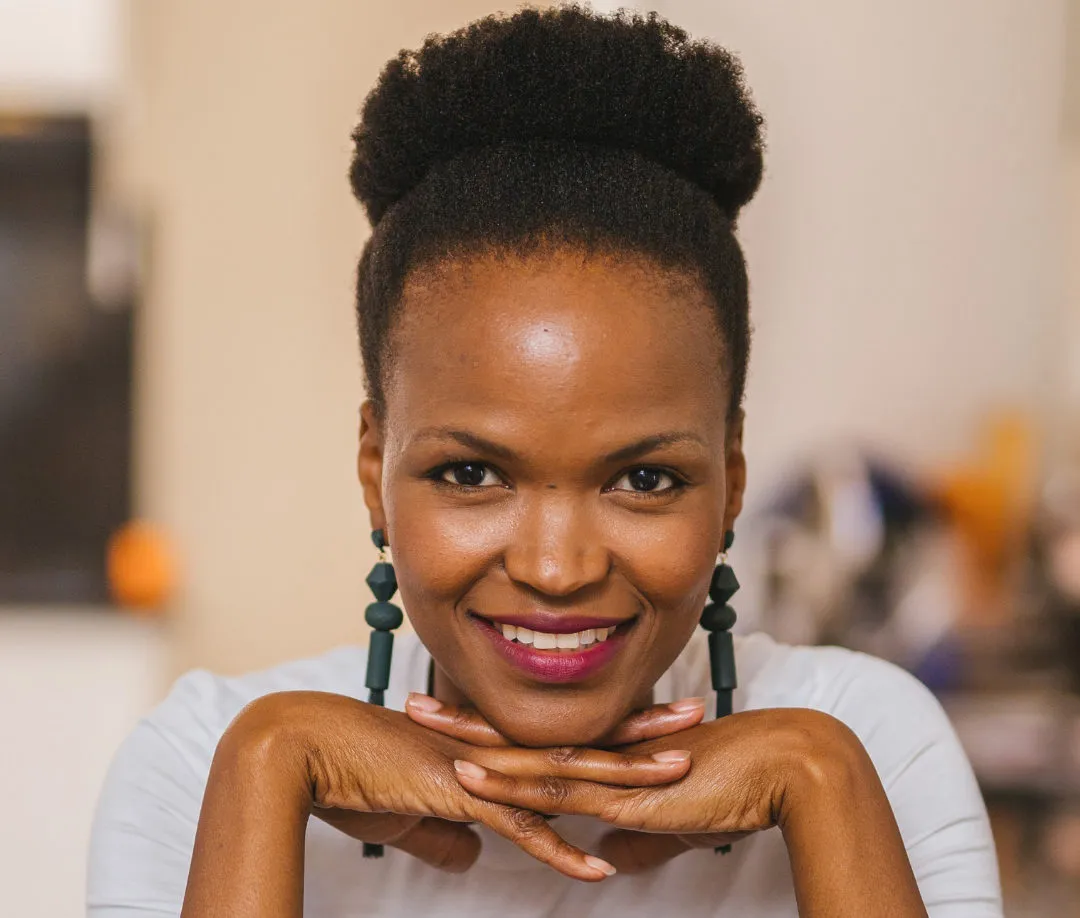
Tlholo Mabelane. (Photo supplied)
When asked about her opinions about the Clicks/TRESemmé advert, Magabane felt that despite its racism it publicised an opinion that many black women felt about their hair. She felt it was part of an ongoing attack on black women’s identity, but “black women looking like Caucasians and South Americans all the time gives racists the licence to continue disrespecting us as a people”.
A recent opinion article by social sciences professor Rozena Maart, tackled the notion of “internalised racism”.
“If you’re a black woman, advertising of the kind used by TRESemmé operates on the basis that you have internalised the racism that has been inflicted upon you. The TRESemmé advert digs into that internalised racism, often unspoken, that lies within the unconscious, by offering visual images of what you experience daily. Black women are then offered an opportunity to buy out of that racialised experience into another,” she wrote.
Mtulu said the backlash regarding the TRESemmé advert stemmed from the fact that hair is both personal and political. She has struggled with feeling underrepresented in terms of hair. A recent example came about when she was searching for hairstyle inspiration for her wedding day.
“I wasn’t getting inspiration that was based on black natural hair or natural hair of colour, it was an overwhelming response of just Caucasian hairstyles. And it was just again reinforcing that that’s the world I live in.”
Mtulu, who was a TRESemmé customer, has chosen to step away from the brand until it can show strides in supporting and advocating for the representation of black hair.
Mabelane highlighted that the advert was an attack on the dignity of women of colour despite them being the biggest consumers of hair care products.
Data from the Professional Hair Care Market SA report in 2010 found that black consumers spend up to six times more than their white counterparts when it comes to hair care and “ethnic African segment is the single largest consumer group and this market has the most potential”.
Clicks, for example, had garnered a reputation among the local natural hair community as the go-to for hair products. It was considered one of the few cosmetics retailers with a wide range of products for black hair. Clicks even has its own trusted natural haircare range, Afri True, and hosts an annual natural hair event called Clicks Curls. Many felt betrayed by a brand they thought understood and celebrated them.
Mtulu feels this is a watershed moment where a dialogue about local products and supporting black-owned brands has emerged. She went through the costly and frustrating process of trial and error, trying to find products that worked for her hair when she went natural.
Reclaiming my beauty and identity
“We as a people need to start wholeheartedly loving, appreciating, embracing and celebrating who we are,” said Magabane. Part of her work with the Redefining Beauty Movement is educating people on the psychology behind hair.
“Most ladies are not even ready to talk about how their very preferences are a result of colonialism, oppression and subjugation. The white man taught us to straighten our hair, he taught us to love straight flowy hair and now people love it so much and even defend wearing it proudly.”
She feels that wearing weaves perpetuates the narrative that “white is better”.
Mabelane started her business Mabu Tribe with the intent of redeeming and celebrating the African identity through hair.
“We are at a crucial time in our healing journey as Africans and may we all find the resolve to participate in any way we can.”
For Mtulu it has been liberating to embrace rather than “fight” her hair.
“I think with anything that you finally expose and are brave enough to do so, liberation follows, and that’s been very true for going natural for me.” DM


















 Become an Insider
Become an Insider
Comments - Please login in order to comment.